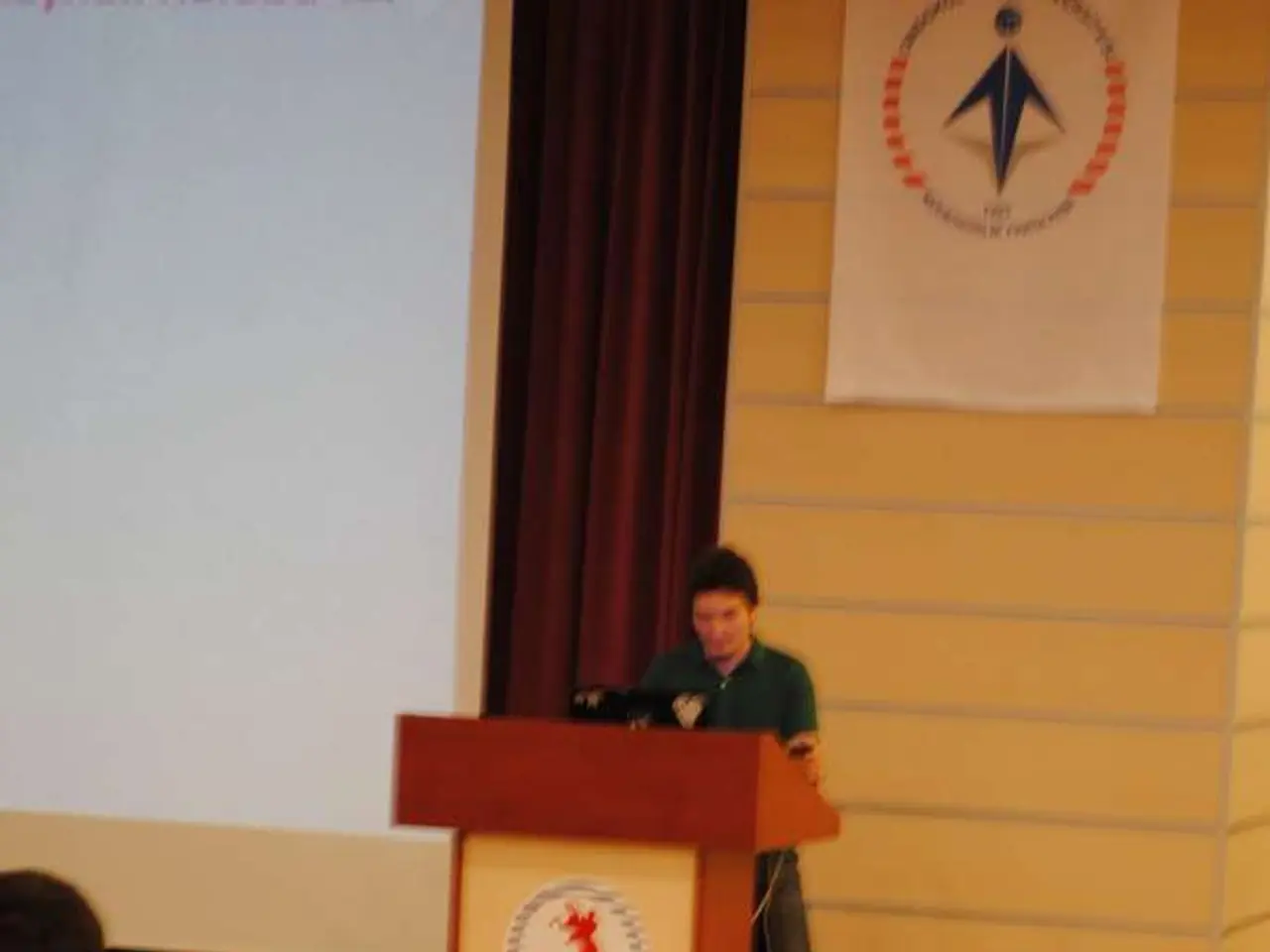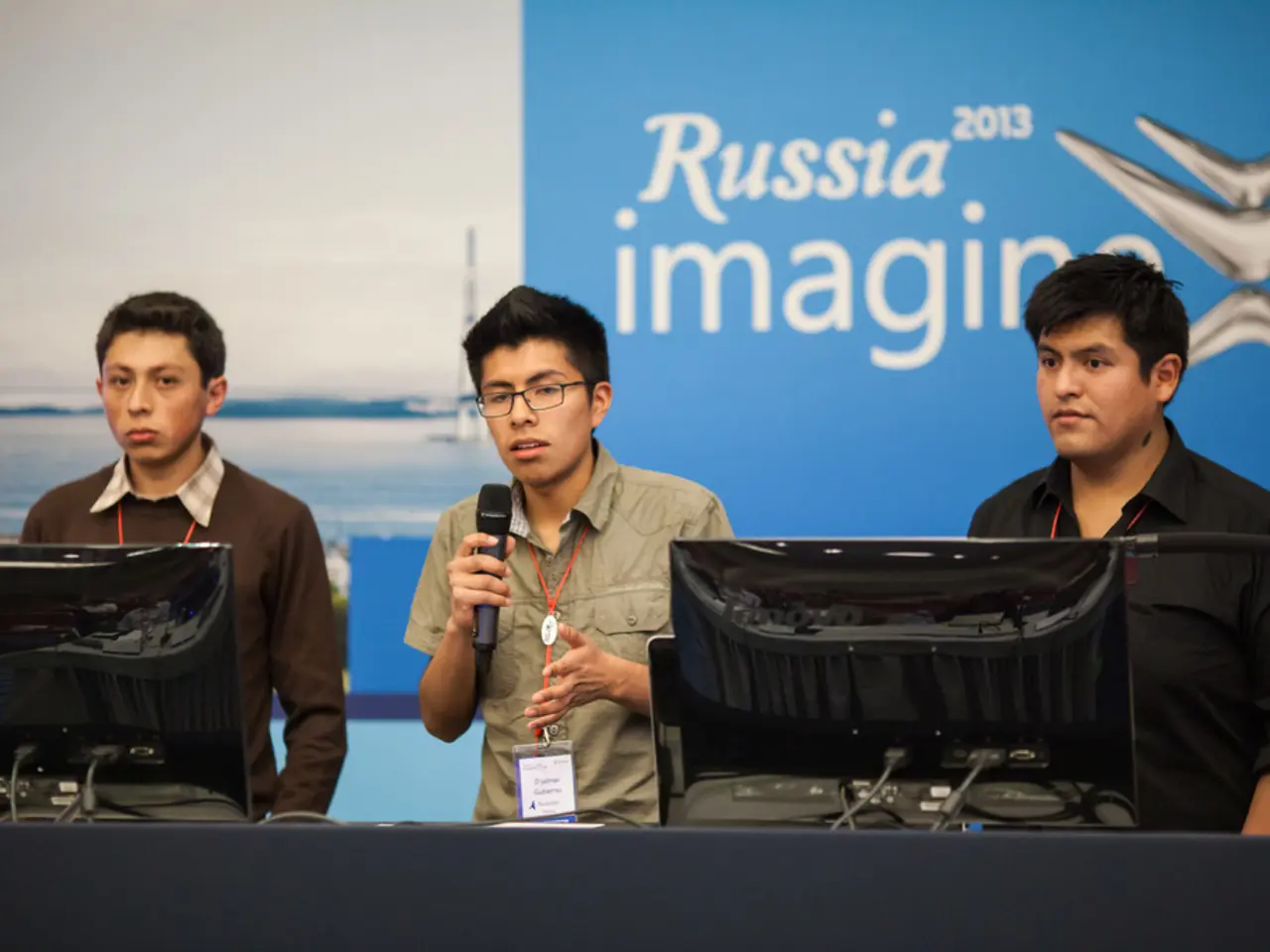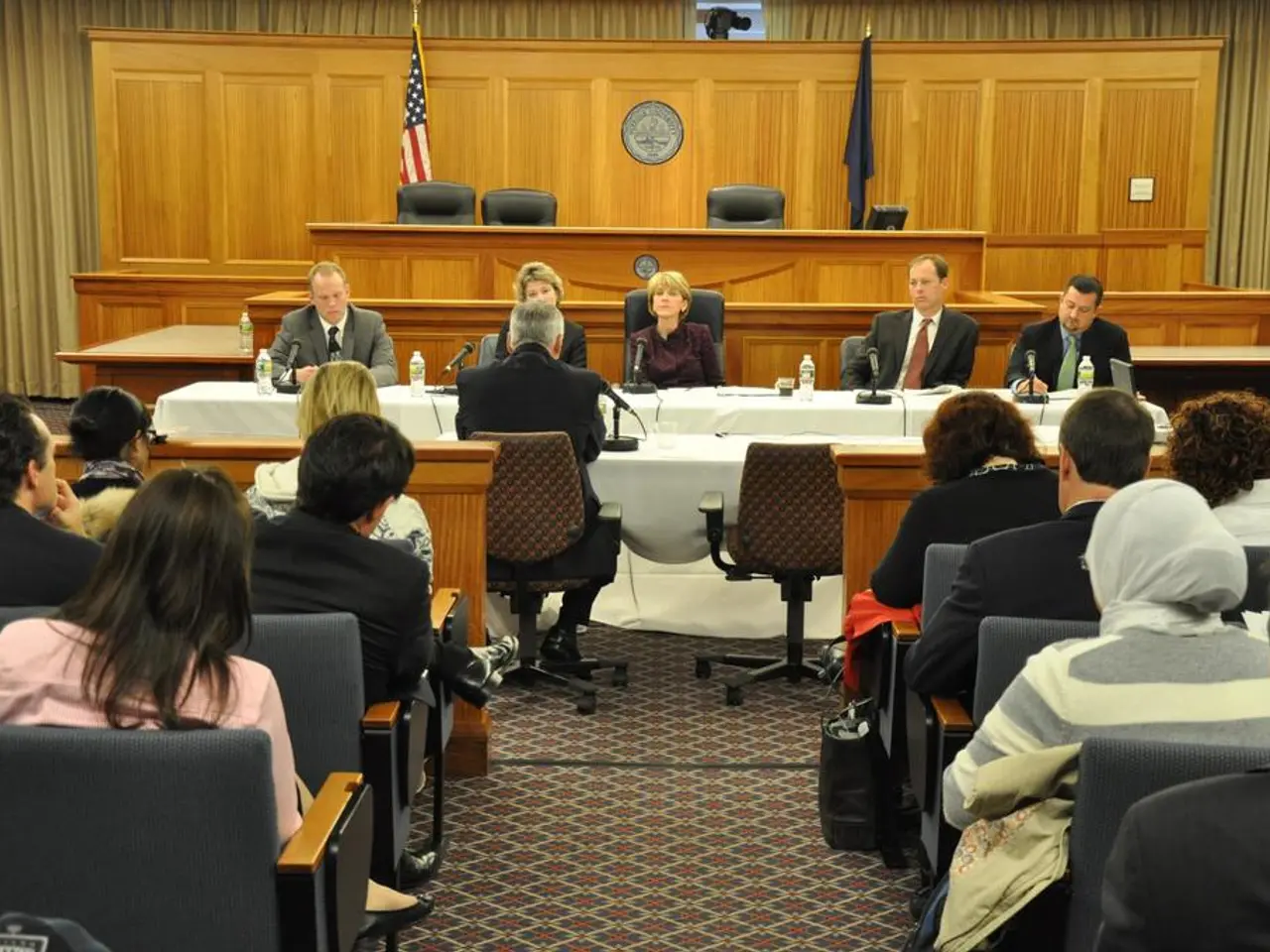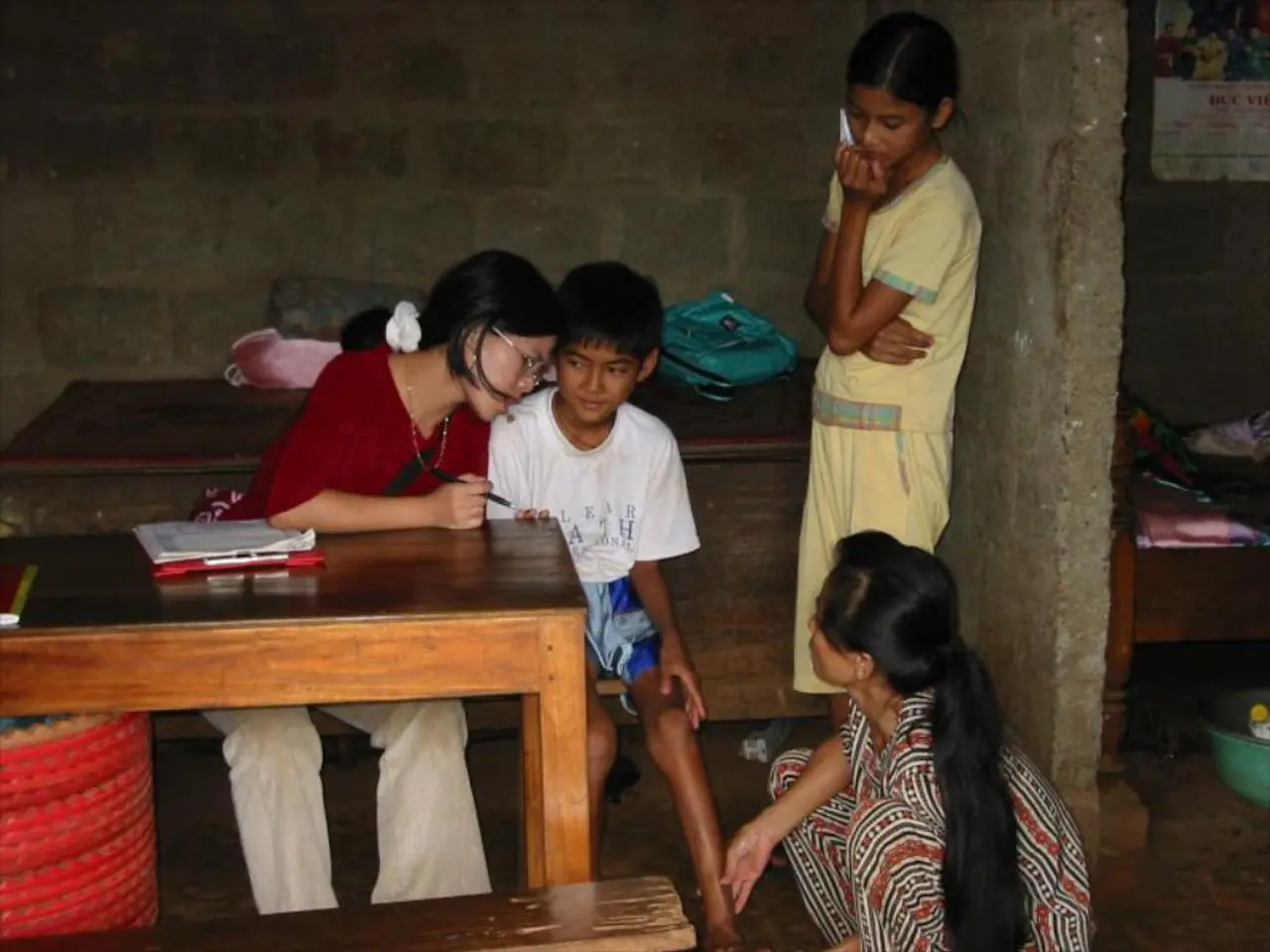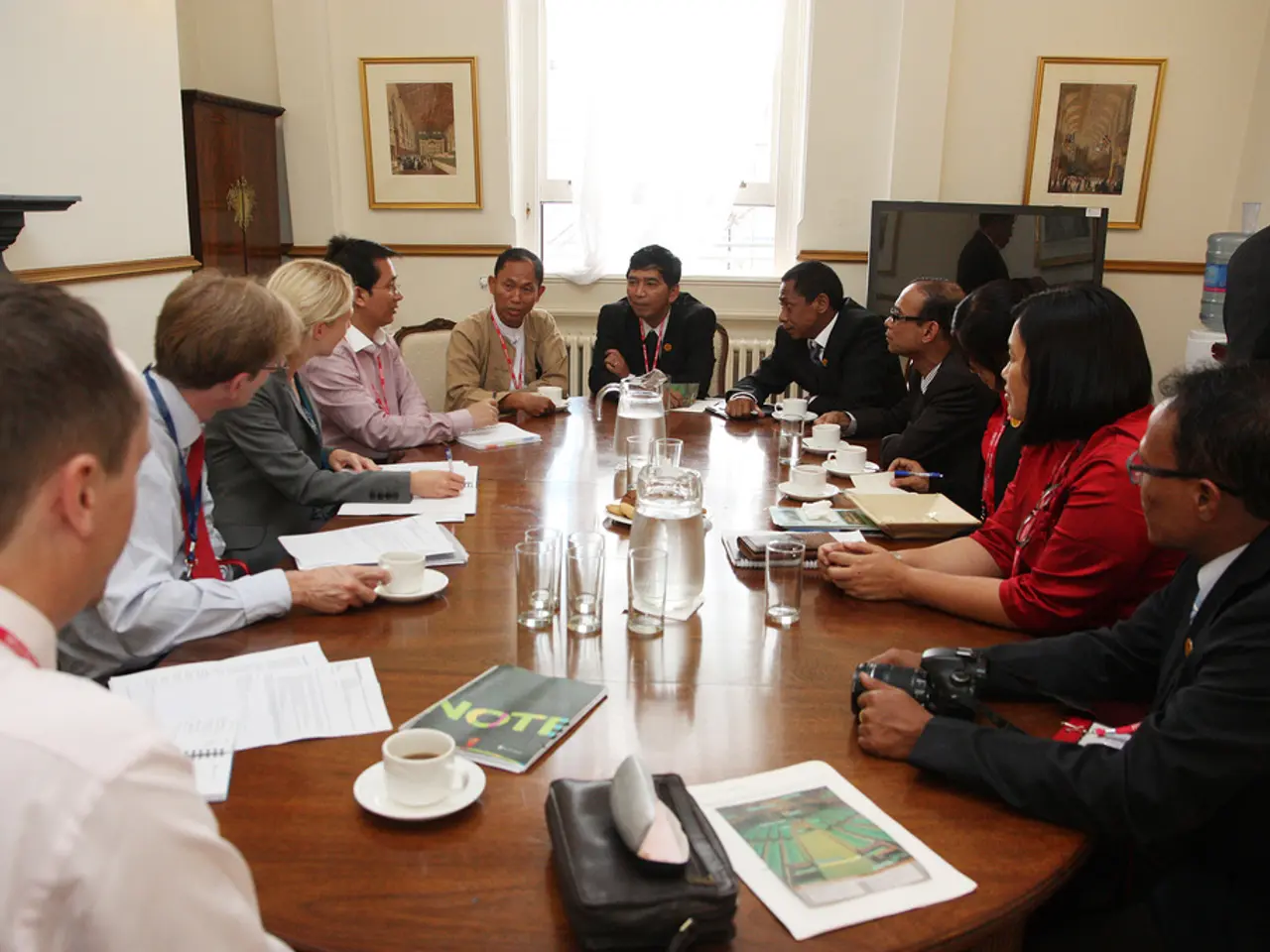Opposition groups express approval following Bhumjaithai party's emergence
In a significant development, the opposition parties in Thailand, including the People's Party, Bhumjaithai, Palang Pracharath, Thai Sang Thai, and others, held their first joint meeting of the new parliamentary session last Thursday. The meeting, chaired by Natthaphong Ruengpanyawut of the People's Party, marked a unified front as the opposition parties aligned on a strategic direction to scrutinize the government effectively.
The meeting, which took place on the sixth floor of parliament at 9.30am, saw key figures from the five parties attend to map out a shared strategic direction for the opposition. Anutin Charnvirakul, leader of the Bhumjaithai Party, who recently left the governing coalition, vowed to fully scrutinise the government in his new role as an opposition party leader.
The opposition parties have welcomed Bhumjaithai's decision to join them, strengthening their collective presence in the House of Representatives. With a total of 238 seats, they now hold a substantial number that could potentially impact government decisions. The parties are committed to working closely together to scrutinise the government, particularly on matters like no-confidence debates.
Initially, the opposition planned to table a no-confidence motion against Prime Minister Paetongtarn Shinawatra, but this action has been put on hold pending the Constitutional Court's verdict on her conduct. If Paetongtarn survives the court's decision, the no-confidence motion could be revived, requiring support from key parties like the People's Party.
The opposition is also involved in leveraging public pressure through street protests, with groups like Ruam Palang Phaen Din calling for Paetongtarn's resignation. However, the opposition aims to avoid political deadlock and ensure that their actions contribute to a more stable political environment.
Khunying Sudarat, a key figure from the opposition, highlighted the importance of a strong opposition during turbulent times. She emphasised the need for the opposition to maintain a strong collaborative stance and use both parliamentary and public platforms to influence government policies and stability.
In conclusion, the opposition parties are focused on maintaining a strong collaborative stance, awaiting legal developments, and using both parliamentary and public platforms to influence government policies and stability. The strategic alignment of the opposition parties promises a more active and coordinated opposition in the coming parliamentary sessions.
- The opposition parties are also focusing on utilizing policy-and-legislation and general-news platforms to scrutinize the government's actions effectively, as emphasized by Khunying Sudarat.
- Politics in Thailand is witnessing a significant shift, with the opposition parties demonstrating a unified front in the parliament and politics, aiming to impact policy-and-legislation decisions through their collective presence.
